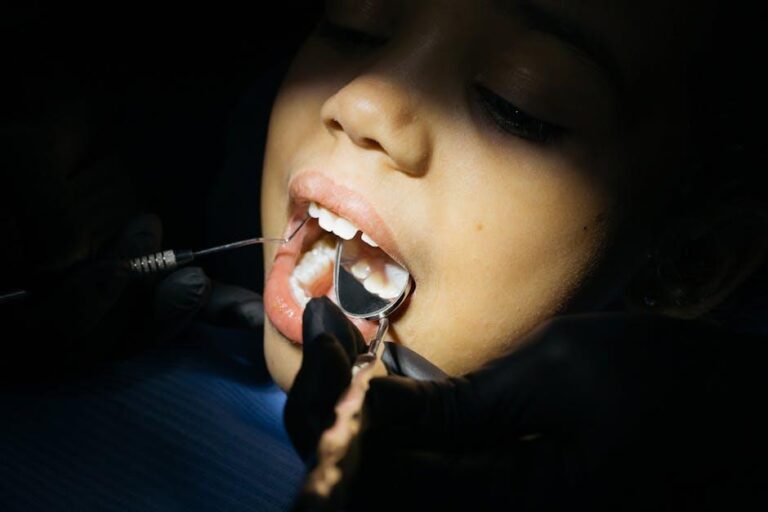Surprising Factors That May Cause More Caries in Kids
Dental caries, commonly known as tooth decay, remains one of the most prevalent health issues among children worldwide. While poor oral hygiene and excessive sugar intake are well-known culprits, many parents and caregivers are unaware of several surprising factors that can significantly increase the risk of caries in kids. At DrBicuspid.com, we understand how crucial it is to educate families about all potential risk factors to protect children’s dental health effectively.
Understanding Caries in Children: A Quick Overview
Before diving into the unexpected causes, it’s important to understand what causes caries. Tooth decay happens when plaque bacteria on teeth metabolize sugars, producing acids that damage tooth enamel. In children, caries can progress rapidly, affecting baby teeth and potentially leading to discomfort, infections, and even problems with permanent teeth formation.
Surprising Factors That May Increase Caries Risk
While sugary snacks and irregular brushing top the common list, the following lesser-known factors also play a significant role in increasing caries risk:
1. Frequent Nighttime Feeding
Parents often comfort infants with a bottle or breastfeeding during the night. However, frequent nighttime feeding, especially with milk or sweetened liquids, exposes teeth to sugars for prolonged periods when saliva flow decreases during sleep, reducing natural cleansing and encouraging decay.
2. Use of Certain Medications
Many medications prescribed to children, such as antihistamines, asthma inhalers, or antibiotics, can reduce saliva production or contain sugar-based syrups, both of which create a favorable environment for bacterial growth and tooth decay.
3. Dry Mouth (Xerostomia)
Saliva is crucial for neutralizing acids and remineralizing teeth. Children experiencing dry mouth due to medical conditions or medication side effects have increased vulnerability to cavities.
4. Enamel Defects and Hypoplasia
Some kids are born with weaker or thinner enamel due to genetics or prenatal conditions; this enamel hypoplasia makes teeth more prone to decay as the protective barrier is compromised.
5. Prolonged Pacifier Use or Thumb Sucking with Sugary Substances
Using pacifiers dipped in honey, sugar, or syrup or prolonged thumb sucking can repeatedly expose teeth to sugars, encouraging plaque build-up and decay formation.
6. Poor Bottle Weaning Practices
Children who are not weaned off bottles by age 1 to 2 might continue sipping milk or juice throughout the day, increasing sugar exposure and rotting teeth.
7. Limited Exposure to Fluoride
Fluoride strengthens enamel and helps repair early decay. Lack of adequate fluoride, from either water sources or dental products, can increase sensitivity to cavities.
8. Socioeconomic and Environmental Factors
Families with limited access to dental care, healthy foods, or oral hygiene education often experience higher rates of childhood caries due to barriers in preventive measures.
Table: Surprising Caries Factors and Their Impact Levels
| Factor | Impact on Caries Risk | Preventive Action |
|---|---|---|
| Frequent Nighttime Feeding | High | Limit night feedings; clean mouth after feeding |
| Medications with Sugar or Dry Mouth Effects | Moderate | Consult doctor for non-sugared options; hydration |
| Enamel Hypoplasia | High | Early dental check-ups; fluoride treatments |
| Prolonged Pacifier Use with Sugars | Moderate | Avoid dipping in sugary substances; limit use |
| Limited Fluoride Exposure | High | Use fluoride toothpaste; fluoridated water |
Benefits of Early Identification and Intervention
Recognizing these less obvious factors early can lead to better preventive strategies and reduce the likelihood of caries developing or worsening. Early intervention can:
- Preserve tooth integrity and prevent pain or infection
- Reduce the need for extensive dental treatments like fillings or extractions
- Support healthy oral habits that last a lifetime
- Improve overall health and self-confidence in children
Practical Tips for Parents to Reduce Caries Risk
To protect your child’s teeth from the hidden culprits of caries, consider these expert tips:
- Establish a Nighttime Routine: Avoid letting your child sleep with bottles containing milk, juice, or sugary liquids and wipe their teeth and gums after feeding.
- Review Medication Ingredients: Ask your pediatrician or pharmacist if prescribed medicines contain sugar and explore alternatives if possible.
- Encourage Hydration: Promote regular water intake to help keep saliva levels adequate and flush sugars from the mouth.
- Schedule Early Dental Visits: The American Academy of Pediatric Dentistry recommends a first dental visit by age one. Early visits can detect enamel defects and provide preventive care.
- Quit Sugary Pacifier Dipping: Never dip pacifiers or fingers in sweet substances and work on stopping habits like thumb sucking early.
- Use Fluoride Wisely: Use age-appropriate fluoride toothpaste and ask your dentist about supplemental fluoride treatments if your local water supply isn’t fluoridated.
Case Study: How Awareness Changed One Family’s Dental Health
One family noticed their toddler developed cavities despite limiting sweets and encouraging brushing. After a dental consultation, they discovered that prolonged nighttime breastfeeding combined with frequent use of a honey-dipped pacifier was the main cause. After working with their dentist to adjust these habits and maintain proper oral hygiene, their child’s dental health improved dramatically, with no new lesions after a year.
Conclusion: Beyond Sugar – A Holistic Approach to Children’s Dental Care
While sugar remains a primary factor in childhood caries, it’s clear that a number of surprising and often overlooked influences contribute to increased risk. By understanding elements like nighttime feeding habits, medication effects, enamel quality, and fluoride exposure, parents and caregivers gain powerful tools to protect their children’s smiles effectively. Regular dental visits, open communication with healthcare providers, and consistent oral hygiene routines form the foundation of a caries-preventive lifestyle. At DrBicuspid.com, we encourage you to take a thoughtful, comprehensive approach so your child can enjoy a lifetime of healthy teeth and confident smiles.
For more expert insights and personalized advice on pediatric dental health, visit DrBicuspid.com.


